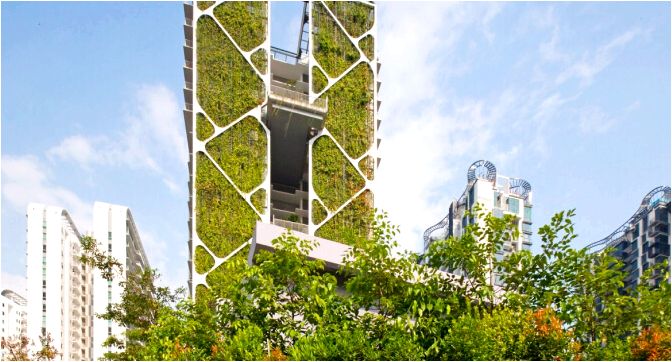
Background:
Infrastructure development is crucial for that achievement from the Millennium Development Goals (MDG) 1 to 7. The unmet interest in infrastructure to aid the delivery of housing, transportation, energy and water services limits economic chance and it is therefore a significant barrier towards the achievement of MDG 1 (poverty and hunger reduction). Patterns of infrastructure development determine the ecological sustainability of monetary growth (MDG7 – ensure ecological sustainability). Consequently, eco-efficiency is really a key qualifying criterion to add mass to sustainable infrastructure, and for that reason a vital objective in developing, planning and building more sustainable metropolitan areas. More eco-efficient infrastructure delivers greater-quality services with less utilization of sources and occasional negative ecological impact, in addition to lower vulnerability to disasters. Eco-efficiency could be measured using indicators that report ecological impact (for example emissions of pollutants) or resource use (for example water or energy), towards the service or economic benefit provided (for example passenger kilometers, within the situation of transportation infrastructure).
Enhancing awareness and also the promotion of eco-efficiency concepts among policymakers, planners and decision makers are urgently needed. This project seeks to advertise the use of eco-efficiency like a main factor for sustainable infrastructure development so that as the groundwork for expanding infrastructure financing possibilities though the introduction of the capability of decision-makers, policymakers and planners to evaluate the eco-efficiency of the infrastructure within an integrated manner. The participation of established systems is anticipated to sustain and multiply project impacts and also to ensure discussing of excellent practices in the regional and interregional levels. The work may benefit from work already made by project partners and when completed from the project, it’s expected that e-learning training modules will sustain project impacts which relevant training institutions, systems and universities continuously provide training.
Objective:
To enhance the capability of policymakers, planners and decision makers to improve the ecological sustainability of infrastructure development, with focus on urban planning, eco-efficiency, disaster prevention, social inclusiveness and financing possibilities through participation in global carbon markets.
Expected accomplishments:
- Enhanced regional understanding management, analytical capacity, awareness and understanding according of eco-efficiency concepts, their contribution towards the achievement of Millennium Development Goals 1 and & 7 as well as their application to infrastructure development
- Enhanced ability to adopt eco-efficiency concepts, measures, and criteria in policies, plans and decision-making associated with infrastructure development
- Enhanced ability to take part in clean energy and efficiency investment possibilities, elevated participation in carbon markets with programmatic and bundled Clean Development Mechanism projects associated with transport, power and-intensive industrial infrastructure
Implementation status:
Through numerous studies the work has reviewed current practices and identified barriers and possibilities for integrating eco-efficiency criteria into urban infrastructure development patterns in Asia as well as in South America. The findings from the studies were presented and discussed at regional and inter-regional workshops, which adopted a framework and methodology to integrate eco-efficiency criteria into urban infrastructure development.
Participants from the training program in Asia shown their improved understanding and capacities by developing an plan of action to enhance the eco-efficiency from the infrastructure within their metropolitan areas. Furthermore, from their own initiative, they’ve created an “;eco-efficiency” subscriber list, by which they positively share ideas, encounters and understanding.
Regional Planning Company directors from the Secretary of state for Public Works (Ministerio de Obras Públicas – MOP, Chile) are dedicated to incorporate eco-efficiency and sustainability criteria within the lengthy-term planning of infrastructure in Chile’s 15 regions.
In Asia, 23 government officials, both from local and central government from 12 countries were trained and also have developed action intends to enhance the eco-efficiency of urban infrastructure within their metropolitan areas.
In South America a procedure has began as a result of the work activities around the design and implementation of Programmatic Clean Development Mechanism (CDM) projects in the local and regional level focusing on trains and buses, energy, water and sanitation.
Resourse:http://www.united nations.org/esa/devaccount/projects/2008/0809E.html Key:Development Account Projects
